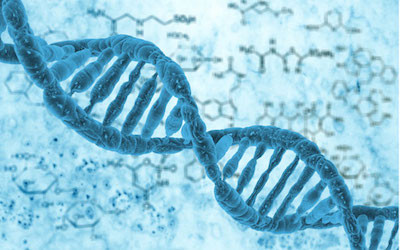Genetic test 'could predict IVF success'

Researchers from the UK and the Netherlands have identified a 'genetic signature' in the womb that could help explain repeated IVF failure in some women.
"Many women undergo a number of IVF cycles without success despite having good quality embryos and, up to now, it has been unclear whether or not the lining of the womb may be the cause of that," said study co-lead Professor Nick Macklon, medical director of Complete Fertility Centre Southampton.
Along with researchers from the University Medical Center Utrecht and the Academic Medical Centre in Amsterdam, the team studied biopsies of the lining of the womb from 43 women diagnosed with recurrent implantation failure, and 72 women who gave birth successfully following IVF or ICSI. They identified a genetic pattern in 80 percent of the women affected by recurrent implantation failure that was not present in the other group.
'We have now shown that an abnormal gene expression in the lining can be identified in many of these women and that a specific gene "fingerprint", when present, is always associated with failure, which is very significant in aiding our understanding of IVF failure,' said Professor Macklon.
The findings, published in Scientific Reports, could be used to develop a test that could help predict the likelihood of successful IVF. Professor Frank Holstege, head of the genomics laboratory at University Medical Center Utrecht, said: "What this tells us is that a large proportion of women who suffer recurrent implantation failure may be infertile due to a problem with the receptivity of their uterus.Their chances of achieving successful pregnancy are likely to be very small and this information gives clinicians much more clarity in counselling patients as to the wisdom of investing further time, effort and money in ongoing treatment."
Dr Geoffrey Trew, consultant in Reproductive Medicine and Surgery at Hammersmith Hospital, London said the study results were promising. "This could be very useful for a small amount of patients who have repeated implantation failure with good embryos and no other cause identified. It will have to go through more trials to validate it, but the basic science is good – and promising", he said.





